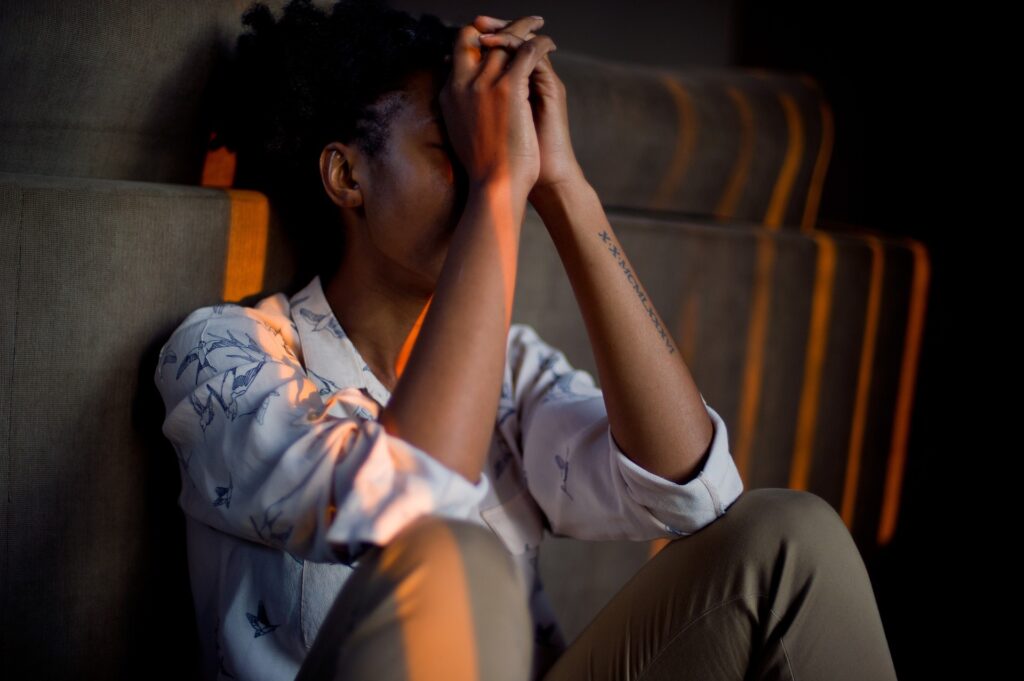How Abuse Affects Your Personality

Have you ever heard of the question, “Is it nature or nurture?” What do you think makes up more of our personalities: our genetic makeup or our early experiences? Many social sciences have long since pondered this question, but none more so than psychology. In fact, an entire branch and sub discipline called personality psychology is dedicated to figuring out what determines our personalities.
Simply put, psychology defines personality as who we are at our core and views it as relatively fixed. But many studies have shown that certain experiences, if they’re significant enough, can actually change a person’s personality. These experiences can be either positive or negative, and one well-researched example is abuse. Exposure to abuse, be it physical or psychological, has been found to not only put us at risk of developing mental illness, but it also negatively impacts our quality of life and self-view in a lot of ways, especially our personality (Green, et al., 2010).
With that said, here are the 6 most common ways abuse can affect an individual’s personality:

1. It makes us more socially inhibited.
Numerous studies have shown that abuse, especially when we experience it at a young age, has long-term consequences on our psychological well-being, especially in terms of our social and emotional wellness. For example, it’s been found that abused children tend to have fewer friends and become more socially inhibited as they grow older (Oates, 1984). People who have been abused tend to become more serious and subdued. They find it difficult to form and maintain friendship because of how abuse can stunt our social development and impair our ability to express ourselves properly — which brings us to our next point!

2. It makes us more emotionally unavailable.
Just as how abuse can make a person become more socially withdrawn, it can also make us more closed off and emotionally unavailable. Oftentimes, people who have been abused find it difficult to trust and open up again to others, even long after the abuse has ended. That’s because, following a traumatic experience, most people struggle to get close to even their oldest and dearest friends and family because of how the trauma has heightened their fear of rejection and betrayal (Augoustinos, 1987).

3. It makes us more emotionally volatile.
Similar to the last point, another way trauma can affect our personality, especially in terms of how we experience and process our feelings, is by making us more emotionally volatile and unstable. Intense emotions and frequent mood swings (like crying or getting angry) are common among those still struggling with the psychological fallout of abuse. In fact, many victims report feeling irritable, depressed, or moody for seemingly no reason at all (Martin & Beezley, 1977).

4. It lowers our sense of self-esteem.
While it makes a lot of inherent sense that being abused would negatively impact the way we see and feel about ourselves, there’s actually a lot more to it than that. Not only does abuse significantly erode our sense of self-worth, it also lowers our ambitions, motivation, drive to succeed, and overall sense of self-esteem. The tendency to self-isolate and keep people at an emotional distance also doesn’t help either, as close interpersonal relationships do a lot to buffer the negative effects of abuse and enhance our positive feelings towards ourselves (Oates, Peacock, & Forrest, 1984).

5. It lowers our sense of optimism.
Another devastating way abuse can change our personality is through the way it negatively impacts our beliefs and worldviews, particularly our sense of optimism. An important determinant of a person’s mental well-being, abuse makes it more difficult for us to believe that everything will work out in the end because experience has taught us to always keep an eye out for the first sign of trouble. So we keep our expectations low and brace ourselves for the worst because we don’t want to be disappointed ever again (Cicchetti & Olsen, 1990).

6. It makes it harder for us to be happy.
Finally, but perhaps most importantly, it’s important to know for a fact that abuse can turn even the happiest, most upbeat person in the world into someone who struggles with their mental health. So don’t beat yourself up if you find it difficult to let yourself be happy and find enjoyment in your day-to-day life sometimes. A lot of people who have experienced adversity report struggling with feelings of anxiety, depression, and post-traumatic stress (Dobson, Allan & Pusch, 2020).
So if you are still struggling with the abuse you’ve been dealt with in the past, know that help is always available. Reach out to a mental healthcare professional today and start healing from the pain of your past. Only then can you regain control of your life and become the person you truly want to be instead of who your abuse is forcing you to be.
References:
- Augoustinos, M. (1987). Developmental effects of child abuse: Recent findings. Child Abuse & Neglect, 11(1), 15-27.
- Cicchetti, D., & Olsen, K. (1990). The developmental psychopathology of child maltreatment. Handbook of developmental psychopathology, 261-279.
- Dobson, K. S., Allan, L., Mar, G., & Pusch, D. (2020). The Long Shadow of Adverse Childhood Experiences (ACEs): 1. Mental Health Outcomes in a Community Sample. American Journal of Preventive Medicine and Public Health, 6(5), 119-128.
- Green, J.G., McLaughlin, K.A., Berglund, P., Gruber, M.J., Sampson, N.A., Zaslavsky, A.M., & Kessler, R.C. (2010). Childhood adversities and adult psychopathology in the National Comorbidity Survey Replication (NCS-R) I: Associations with first onset of DSM-IV disorders. Archives of General Psychiatry, 62, 113-123.
- Martin, H. P., & Beezley, P. (1977). Behavioral observations of abused children. Developmental Medicine & Child Neurology, 19(3), 373-387.
- Oates R. K. (1984). Personality development after physical abuse. Archives of disease in childhood, 59(2), 147–150. https://doi.org/10.1136/adc.59.2.147
- Oates, R. K., Peacock, A., & Forrest, D. (1984). The development of abused children. Developmental Medicine & Child Neurology, 26(5), 649-656.




Responses